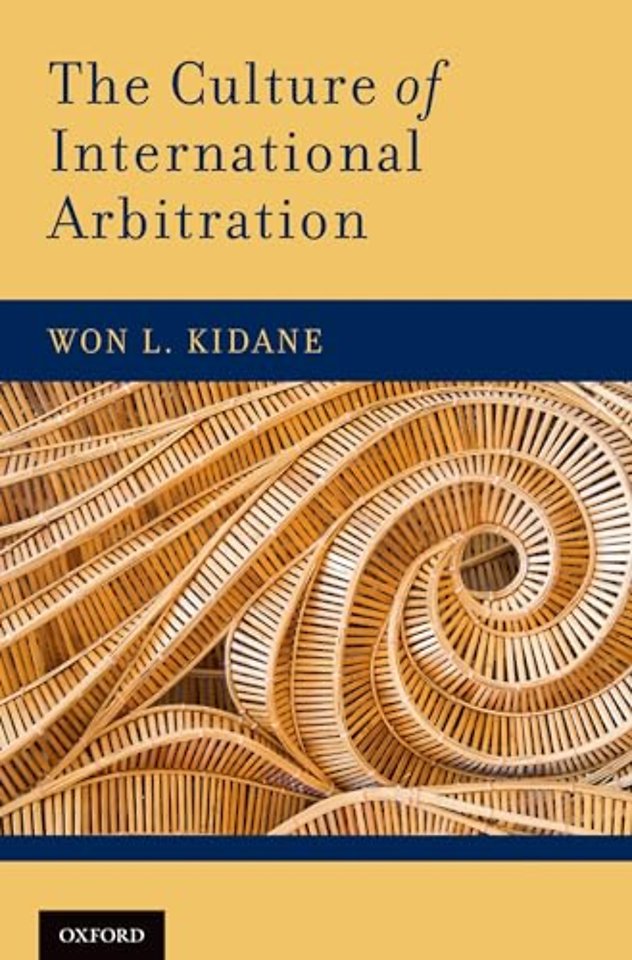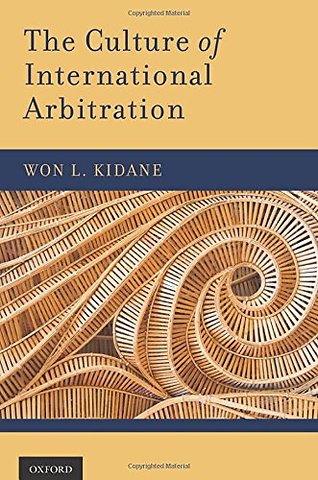The Culture of International Arbitration
Samenvatting
Although international arbitration has emerged as a credible means of resolution of transnational disputes involving parties from diverse cultures, the effects of culture on the accuracy, efficiency, fairness, and legitimacy of international arbitration is a surprisingly neglected topic within the existing literature. The Culture of International Arbitration fills that gap by providing an in-depth study of the role of culture in modern day arbitral proceedings. It contains a detailed analysis of how cultural miscommunication affects the accuracy, efficiency, fairness, and legitimacy in both commercial and investment arbitration when the arbitrators and the parties, their counsel and witnesses come from diverse legal traditions and cultures.
The book provides a comprehensive definition of culture, and methodically documents and examines the epistemology of determining facts in various legal traditions and how the mixing of traditions influences the outcome. By so doing, the book demonstrates the acute need for increasing cultural diversity among arbitrators and counsel while securing appropriate levels of cultural competence. To provide an accurate picture, Kidane conducted interviews with leading international jurists from diverse legal traditions with first-hand experience of the complicating effects of culture in legal proceedings.
Given the insights and information on the rules and expectations of the various legal traditions and their convergence in modern day international arbitration practice, this book challenges assumptions and can offer a unique and useful perspective to all practitioners, academics, policy makers, students of international arbitration.
Specificaties
Inhoudsopgave
Acknowledgments
Table Of Select Abbreviations
Table Of Cases
Table Of Statutes
Table Of Conventions
Part One
Culture And The Legal Framework And Theoretical Pillars Of International Arbitation
Chapter 1: Introduction
Chapter 2: Defining Legal Culture
A. A Brief Look At Culture In Transnational Business
B. Preliminary Thoughts On Culture In International Arbitration
C. Conclusion
Chapter 3: The Political And Cultural History Of International Arbitration In Various Legal Traditions
A. The Political And Cultural History Of Contemporary International Arbitration
B. The Evolution Of The Courts' Tolerance Of International Arbitration In Various Legal Traditions
1. Common Law Legal Tradition
2. Civil Law Legal Tradition
3. Chinese Legal Tradition
4. African Legal Tradition
Chapter 4: The Theories And Theoreticians Of International Arbitration
A. The Theories And Theoreticians
1. Emmanuel Gaillard's Theory
2. Jan Paulsson's Theory
3. Catherine Rogers' Theory
4. Gary Born's Theory
5. Sundaresh Menon's Theory
6. David Caron's Theory
B. Conclusion
Chapter 5: The Evolving Justifications Of International Arbitration
A. Initial Justifications
B. Contemporary Justifications
C. Assessing The Credibility Of The Contemporary Justifications
1. Jurisdictional Justification
2. Promotional Justifications
D. Conclusion
Chapter 6: Culture And The Legal Infrastructure Of Commercial Arbitration
A. A Cultural Analysis Of The Legal Framework
1. The New York Convention
B. Conclusion
Chapter 7: Culture And The Legal Infrastructure Of Investment Arbitration
A. The Icsid Legitimacy Debate
1. Empirical Studies
2. A Closer Look At The Empirical Studies
B. A Historical Perspective
1. The Doctrinal Debate
2. Why Was Icsid Accepted?
C. Quantitative Indicators
1. Arbitrator Nationality
2. Counsel Nationality
3. Claimant Nationality
4. Location
5. Outcome On Jurisdiction
6. Outcome On The Merits
7. Allocation Of Cost
D. The Virtues Of Aristocratic Justice
1. Who Are The "Virtuous" Men?
2. Why Do The Africans Appoint The Virtuous Men?
E. Conclusion
Part Two
Deconstructing The Mythology Of Specialized Knowledge In International Arbitration
Chapter 8: Diversity In The Epistomology Of Judicial Fact Finding In The Major Legal Traditions Of The World: Indicators For Conduct In International Arbitration
A. Fact Finding In The Common Law Legal Tradition
B. Fact Finding In The Civil Law Legal Tradition
C. Fact Finding In The Chinese Legal Tradition
D. Fact Finding In Islamic Legal Tradition
E. Conclusion
Chapter 9: Fact Finding And Cultural Diversity In International Arbitration
A. Fact-Finding In The Fog
B. Culture As Fact; Fact As Culture
C. Interpretation And Application Of Law As A Cultural Practice
Chapter 10: The Typical Process For Selection And Challenge Of Arbitrators
A. Appointment And Challenge
1. Appointment
2. Challenge
3. The Conduct Of Arbitration
4. The Iba Rules On The Taking Of Evidence In International Arbitration
B. Conclusion
Chapter 11: The Mythology Of Specialized Knowledge
A. Jan Paulsson's Question: "Who's Complaining?"
1. The Audacity Of Elitism
2. Culturally Different Facts And Concepts: Applied Legal Philosophy
B. Conclusion
Chapter 12: Conversations On The Role Of Culture In International Arbitration
1. Introduction
2. Conversations File
A. Conversation With Judge Abdulqawi Yusuf, Vice President Of The International Court Of Justice.
B. Conversation With Judge Judge Xue Hanqin, Judge Of The International Court Of Justice.
C. Conversation With Judge Julia Sebutinde, Judge Of The International Court Of Justice.
D. Conversation With Jurist No. 1
E. Conversation With Jurist No. 2
F. Conversation With Jurist No. 3
G. Conversation With Jurist No. 4
H. Conversation With Mr. Thomas R. Snider
Chapter 13: Summary Of Conclusions
Bibliography
Index
Anderen die dit boek kochten, kochten ook
Net verschenen
Rubrieken
- aanbestedingsrecht
- aansprakelijkheids- en verzekeringsrecht
- accountancy
- algemeen juridisch
- arbeidsrecht
- bank- en effectenrecht
- bestuursrecht
- bouwrecht
- burgerlijk recht en procesrecht
- europees-internationaal recht
- fiscaal recht
- gezondheidsrecht
- insolventierecht
- intellectuele eigendom en ict-recht
- management
- mens en maatschappij
- milieu- en omgevingsrecht
- notarieel recht
- ondernemingsrecht
- pensioenrecht
- personen- en familierecht
- sociale zekerheidsrecht
- staatsrecht
- strafrecht en criminologie
- vastgoed- en huurrecht
- vreemdelingenrecht







